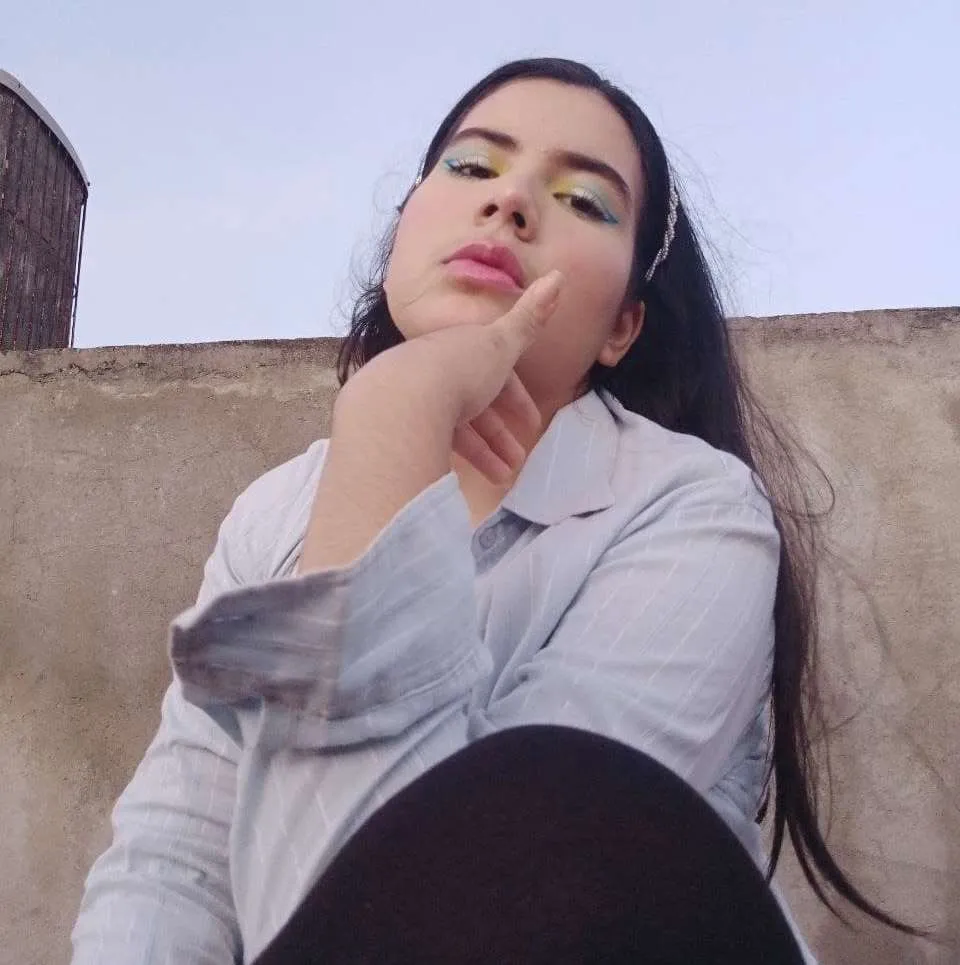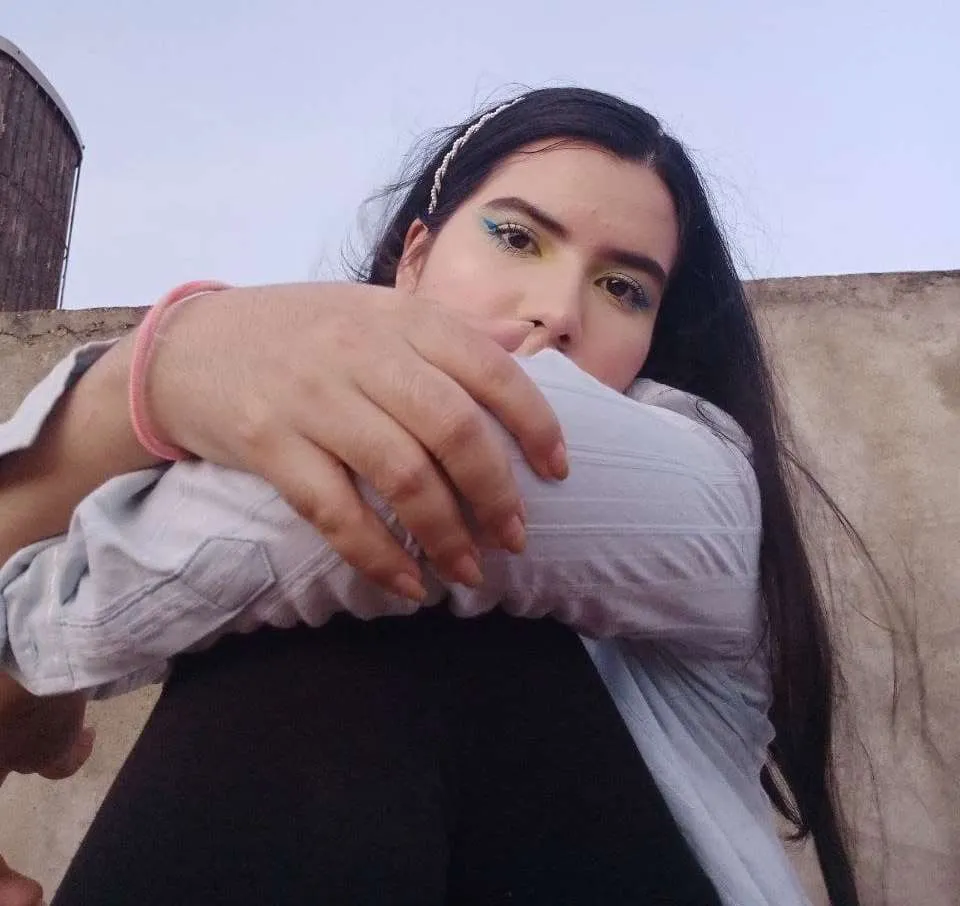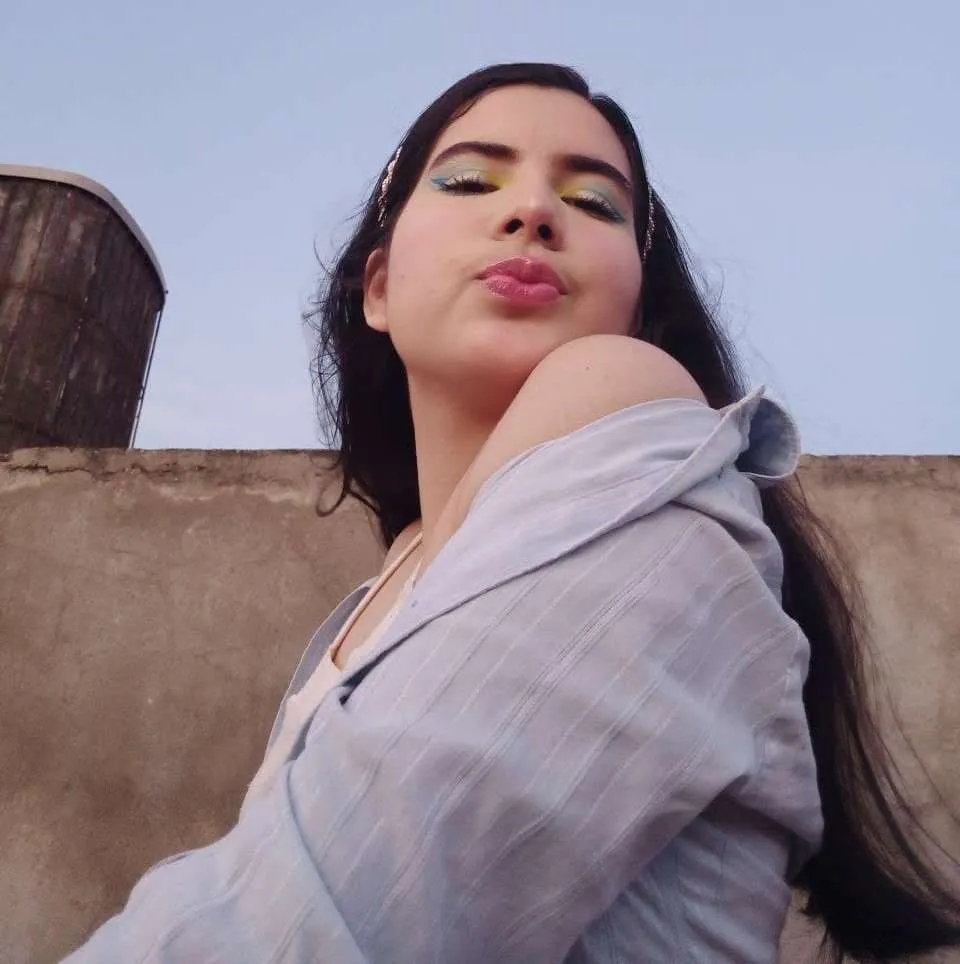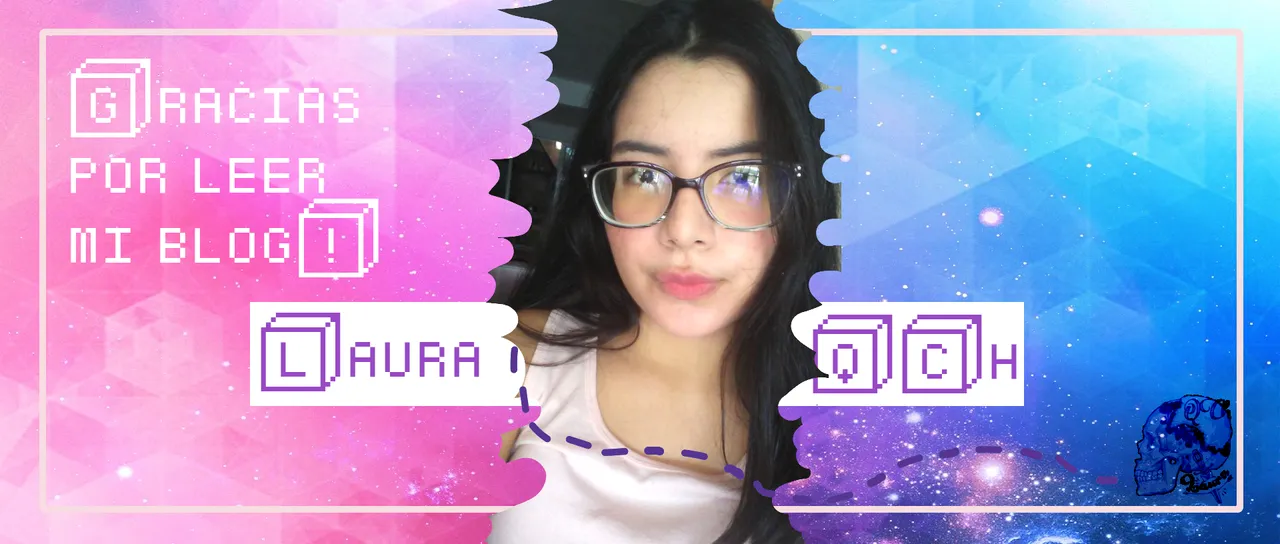
Image edited in Gimp and Canva.

Hace poco mi querida amiga @lolysacc, escribió un grandioso post sobre salud mental, en el que se le veía responder varias preguntas, muy interesantes, propuestas originalmente por la hiver @cami.rojas en su Tag: 5 preguntas para hablar de salud mental.
La salud mental es tan importante, y casi nunca se habla o hace énfasis en este tema. Por lo que responder este tag me parece una gran iniciativa para la comunidad Hiver.
Así que, yo, Laura QCh, vengo a responder esas 5 preguntas para hablar sobre salud mental.
Sin más que decir, comencemos.
Recently my dear friend @lolysacc, wrote a great post about mental health, which saw her answer several questions, very interesting, originally proposed by hiver @cami.rojas in her Tag: 5 questions to talk about mental health.
Mental health is so important, and almost never talked about or emphasized. So answering this tag seems to me like a great initiative for the Hiver community.
So, I, Laura QCh, come to answer those 5 questions to talk about mental health.
Without further ado, let's get started.



¿Alguna vez te han enseñado a ser inteligente emocionalmente o te han hablado de la salud mental?
En realidad no, creo que mis primeros acercamientos con estos temas fue por medio de libros. Recuerdo muy bien que, lo más parecido a tener consciencia sobre mis emociones y pensamientos, fue a través de la lectura de un libro de autoayuda prestado de una amiga; Tus Zonas Erróneas.
Y teniendo 14 años, una lectura como aquella, en realidad resulta muy sorprendente.
¿Cuando fue la primera vez que sentiste ansiedad o desequilibrio en tus emociones?
No podría decir con exactitud, pero si puedo decir cual fue la época en la que fueron muy evidentes e insoportables. Entre los 15-16 años. De ahí en adelante he tenido una que otra decaída, pero nunca tan baja como aquella, y espero nunca volver hacerlo. Con la madurez de ahora, y todo lo que he aprendido, sé, más o menos, hacerle frente.
Have you ever been taught how to be emotionally intelligent or talked about mental health?
Not really, I think my first approaches to these topics were through books. I remember very well that, the closest I came to having awareness about my emotions and thoughts, was through reading a self-help book borrowed from a friend; Your Mistaken Zones.
And being 14 years old, a reading like that is actually quite surprising.
When was the first time you felt anxiety or imbalance in your emotions?
I couldn't say exactly, but I can say when they were very evident and unbearable. Between 15-16 years old. From then on, I have had one or two downturns, but never as low as that one, and I hope I never do it again. With maturity now, and all that I have learned, I know, more or less, how to cope with it.



¿Crees que los medios actuales de comunicación, llevan el mensaje correcto de la salud mental?
La verdad estoy de acuerdo y no tan de acuerdo. Temo que muchas series televisivas para adolescentes romantizan tener desequilibrios mentales y emocionales, haciéndolo ver como "cool" o algo así. Y ciertamente no lo es. Sin embargo, hay también muchas excepciones, y creo que ahora se habla mucho más acertadamente sobre este tema. Y la terapia ya no es una actividad secreta que hacen personas "locas", no. Sino un medio usado por cualquier persona que voluntariamente decide tratar su salud mental.
¿Cuál ha Sido tu mayor aporte a tu salud mental?
Aceptar que no esta bien, y no es normal tener episodios de ansiedad o depresivos. No es normal, y no se va a pasar solamente con distraerme o las horas (o sumarle días) que no es algo que puedo ignorar, y que debo tratarlo. Aceptar que mi salud mental también importa como la física, porque aunque nadie pueda ver como me esta afectando, yo sí que puedo sentirlo, y me afecta.
Do you think the current media carries the right mental health message?
I actually agree and not so much agree. I fear that many teen TV series romanticize having mental and emotional imbalances, making it look "cool" or something. And it certainly isn't. However, there are also many exceptions, and I think there is a lot more accurate talk about it now. And therapy is no longer a secret activity done by "crazy" people, no. It is a means used by anyone. It is a means used by anyone who voluntarily decides to treat their mental health.
What has your greatest contribution to your mental health been?
Accepting that it's not okay, and it's not normal to have episodes of anxiety or depression. It's not normal, and it's not going to go away just by distracting myself or the hours (or add days) that it's not something I can ignore, and that I need to treat it. Accept that my mental health also matters just like my physical health, because even though no one can see how it's affecting me, I can feel it, and it affects me.



¿Si tuviéramos a una persona que está luchando contra la depresión, ansiedad o cualquier otra cosa que afecte su salud mental y en el otro extremo a una persona que dice que lo hace por llamar la atención, que les dirías a cada una?
A la primera persona le diría: Te creo, y no estas solo, te prometo que con la ayuda y la guía necesaria te vas a sentir mucho mejor, pero tienes que poner de tu parte, y creer en ti. Tú puedes hacerlo, aunque todo ahora mismo indica, o te haga creer que eres débil, eres una persona muy fuerte, porque estas luchando una batalla que nadie puede ver, y admitirlo, y pedir ayuda, es el primer paso para ganarla. Eres valiente y eres muy fuerte.
A la segunda persona le diría: En verdad no le diría nada, solo la ignoraría. O quizás intentaría hacerla concienciar sobre estos temas, pero eso sería muy difícil, y prefiero gastar mis energías en alguien que necesita ayuda, que en alguien que solo quiere ganar una discusión.
Y eso fue todo, amigos, espero que les haya gustado. Quiero invitar a @lililuki y @georgelys, quienes creo tendrán increíbles respuestas.
¡Saludos y se les quiere!
If we had a person who was struggling with depression, anxiety or anything else that was affecting their mental health and on the other end a person who said they were doing it for attention, what would you say to each of them?
To the first person I would say: I believe you, and you are not alone, I promise you that with the necessary help and guidance you will feel much better, but you have to do your part, and believe in yourself. You can do it, even if everything right now indicates, or makes you believe that you are weak, you are a very strong person, because you are fighting a battle that no one can see, and admitting it, and asking for help, is the first step to win it. You are brave and you are very strong.
To the second person I would say: I wouldn't really say anything to her, I would just ignore her. Or maybe I would try to make her aware of these issues, but that would be very difficult, and I would rather spend my energies on someone who needs help, than on someone who just wants to win an argument.
And that was it folks, I hope you liked it. I want to invite @lilililuki and @georgelys, who I think will have amazing answers.
Greetings and you are loved!

Traducción hecha en: DeepL
Imagenes editadas en Gimp y PhotoScape.
¡Se despide Laura QCh! / Laura QCh says goodbye!









